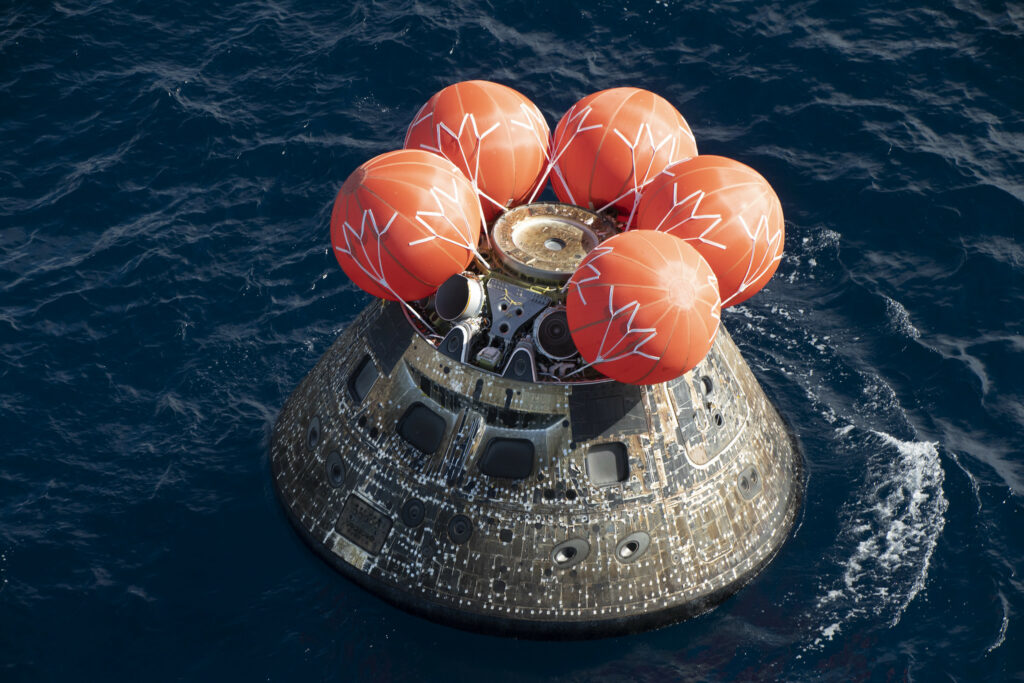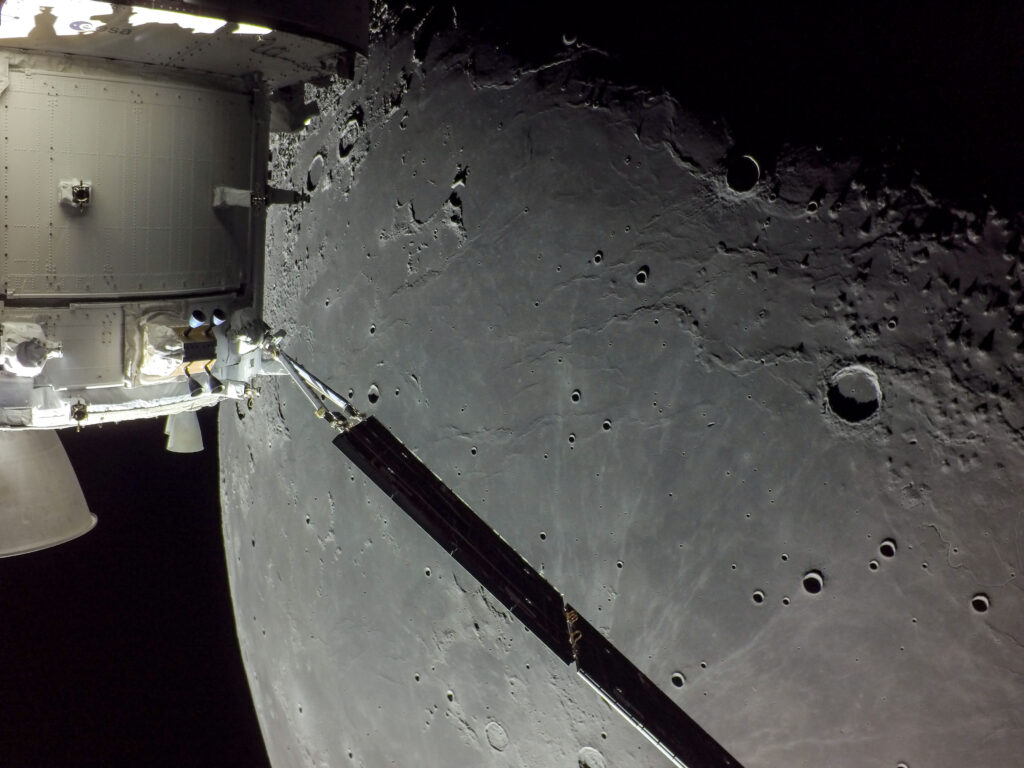The Orion spacecraft capsule was successfully delivered to the Kennedy Space Center at Cape Canaveral. Now NASA specialists will be able to start extracting its payload and data collected during the flight.
Orion’s “Homecoming”
Orion was launched by an SLS rocket on November 16, 2022. During its 25-day journey, the spacecraft reached the Moon, entered a long retrograde orbit around it, performed a series of various maneuvers, and then set off on a return course to Earth. On December 11, its manned capsule landed in the Pacific Ocean. In total, it flew a distance exceeding 2.2 million km.

After landing, the Orion capsule was picked up by a search ship. It was taken to the naval base in San Diego, after which it was transported to Cape Canaveral by truck. The capsule returned “home” on December 30.
In the very near future, specialists will begin a detailed inspection of the capsule. First of all, the remnants of chemical reagents that were required for the functioning of the on-board equipment will be extracted from it. Next, the heat shield will be removed from the capsule. Its testing was one of the main objectives of the mission. The shield would be subjected to a detailed analysis to determine what impact the entry into the Earth’s atmosphere had on it.
Engineers will also extract the entire payload from the capsule. These are spacesuited manikins and sensors that measured the level of radiation and overload during the flight. As part of the biological experiment, seeds of plants and algae, as well as spores of fungi and yeast were also placed on board Orion. Scientists would study what effect the increased radiation had on them.
Next flight under the Artemis program
The next Artemis mission is scheduled for May 2024. Within its framework, four astronauts aboard Orion will fly around the Moon on a free return trajectory, after which they will return to Earth.

So far, NASA has not announced the crew of this expedition. But it is known that it will include three American astronauts and one representative of the Canadian Space Agency.
Earlier we talked about a whole series of “Easter eggs” placed by NASA on board Orion.
According to https://blogs.nasa.gov
Follow us on Twitter to get the most interesting space news in time
https://twitter.com/ust_magazine

